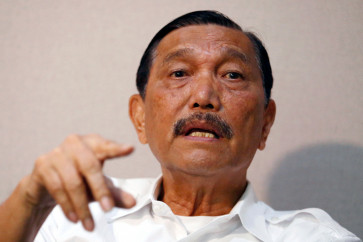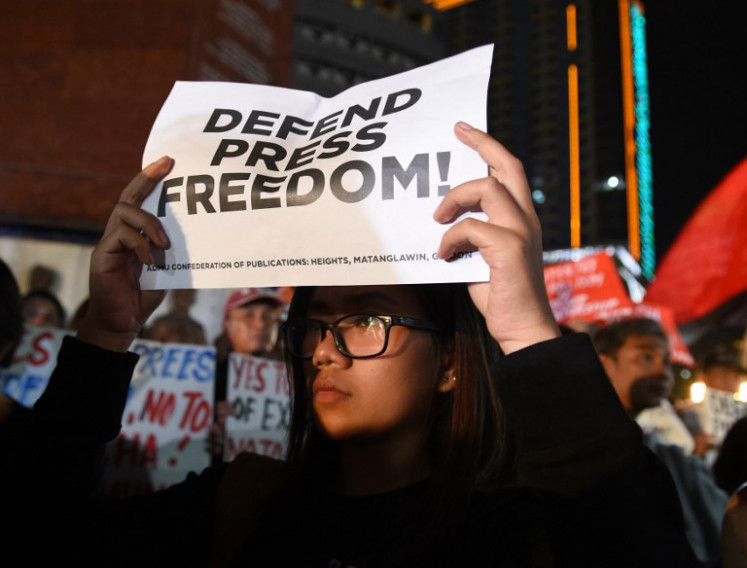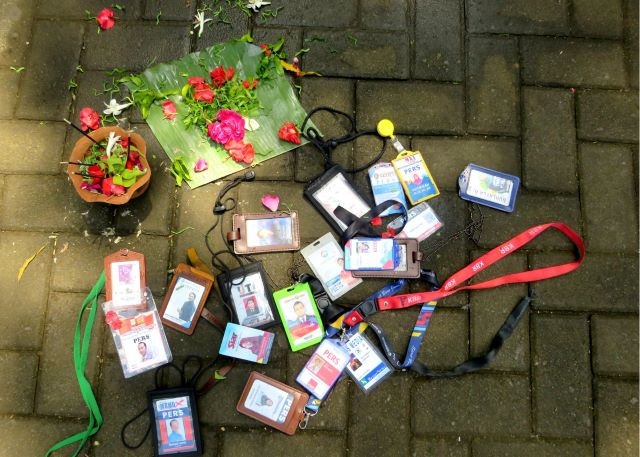Young voters may not be swayed by religious sentiment
The gubernatorial race is particularly challenging for young voters in Jakarta, with the religion card being played by certain groups and the nation’s political elites doing whatever they can to win the city, now seen as a key to victory in the 2019 general elections
Change Size

T
he gubernatorial race is particularly challenging for young voters in Jakarta, with the religion card being played by certain groups and the nation’s political elites doing whatever they can to win the city, now seen as a key to victory in the 2019 general elections.
Yohana, a 22-year-old student at the National University, said she had discussions with her friends and also her father before deciding that she would vote for the incumbent candidate, Governor Basuki “Ahok” Tjahaja Purnama.
“As a Muslim, I am actually quite devout. Aside from that, my religion clearly prohibits us from electing leaders who are not Muslims,” she told The Jakarta Post over the weekend. “However, if we separate religion from Ahok’s actual performance, he has been competent as a governor.”
Ahok, who remains the candidate to beat in the race, is a Christian. With his running mate and deputy, Djarot Saiful Hidayat, he has been focusing his political campaign on reminding Jakarta voters of his achievements as governor.
Yohana said she was at first interested in the Anies Baswedan-Sandiaga Uno pair. Anies, a renowned academic and a former education and culture minister, is a high-profile figure widely known for his integrity. But she said even Anies had failed to change her mind, as she believed Ahok was still the right man for the city’s top job.
Another young voter, Azara Mahdaniar, 21, had also considered Anies but she said she doubted whether “Anies could be as firm as Ahok” and ended up supporting the incumbent.
“In a range from one to five, I would opt for five in my confidence about my choice. I hope in their hands, Jakarta will become more developed,” said Azara, a resident of Radio Dalam, South Jakarta.
First-time or younger voters, who make up between 13 and 25 percent of the 7 million eligible voters, could determine the outcome of the election, according to some pollsters.
According to recent data from the Jakarta General Elections Commission (KPUD), about 400,000 Jakartans aged between 17 and 20 will vote for the first time in February’s election. It is possible this number could increase as the voters’ list will be updated before being finalized on Oct. 27, KPUD Jakarta chairman Sumarno said.
Meanwhile, a July survey conducted by Jakarta-based pollster Saiful Mujani Research and Consulting (SMRC) found that young voters aged between 17 and 25 would be likely to account for about 25 percent of total eligible voters.
These young voters have been described as “rational” and not taking religion or race into consideration in choosing a governor.
They are more concerned with issues related to job creation, education access, mobility and corruption eradication, SMRC survey executive director Djayadi Hanan said.
A number of pollsters have shown different results regarding young voters’ preferences in the election.
A survey by Public Opinion and Policy Research (Populi) predicted that 46.7 percent of young voters aged between 17 and 25 were likely to vote for Ahok-Djarot, followed by Anies-Sandiaga with 28.3 percent and Agus Harimurti Yudhoyono-Sylviana Murni with 13.3 percent.
The Indonesian Survey Circle (LSI) found a different result, placing Agus-Sylviana as the most electable candidates among young voters with 33.8 percent, followed by Anies-Sandiga with 30.8 percent and Ahok-Djarot with 27.8 percent.
The LSI survey claims that Ahok’s electability has declined mainly as a result of the emergence of Anies and Agus as his rivals and the rise of religious sentiment in the election.
Several Muslim groups have reported the governor for blasphemy after a video showing him citing a verse from the Quran went viral on social media.
In the video, Ahok was commenting on people who have been using the Quran to discourage voters from voting for him. The objectors claim his statements were an attempt to defame Muslims’ holy book.
Yohana said she was aware of the uproar. “I’m also upset as a Muslim. He should not have said that, as if there were no other things to say. However, I don’t know if I can choose any of the other candidates.”









